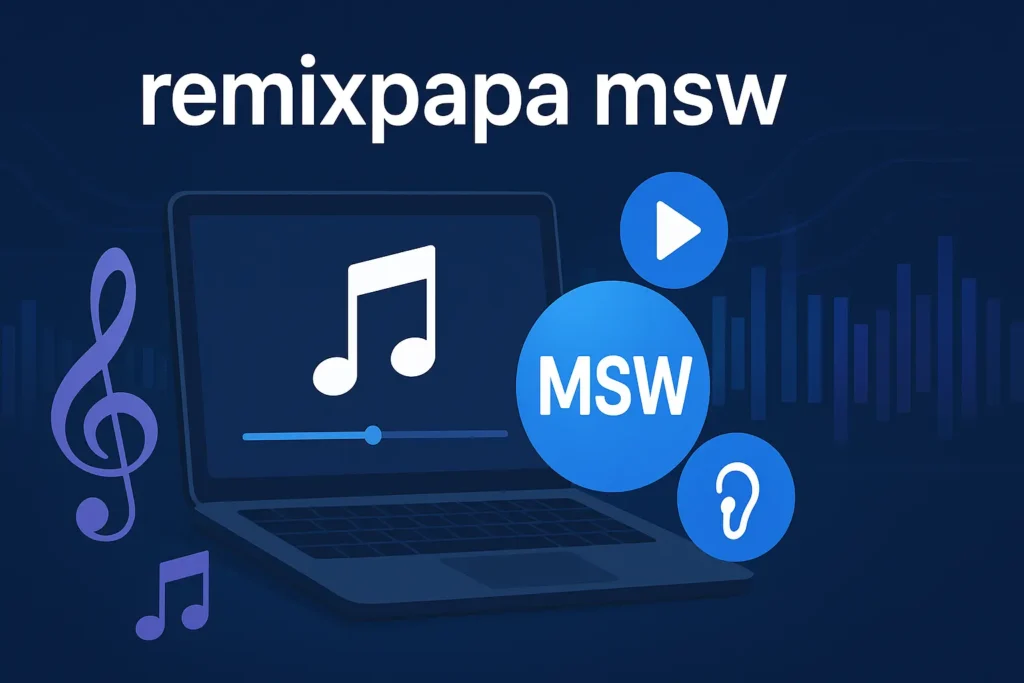In modern web application development, speed and reliability are everything. Developers often struggle when backend services are unstable, unavailable, or still in progress. This is where remixpapa msw provides an effective solution. By combining the Remix framework with Mock Service Worker (MSW), teams can mock APIs, test complex scenarios, and create realistic applications without waiting for backend completion. The result is faster iteration, smoother workflows, and fewer bugs slipping through the cracks.
What remixpapa msw Means and Why It Matters
At its core, remixpapa msw is a workflow that integrates MSW with the Remix framework. Remix offers a strong data-loading model, while MSW intercepts network requests and returns controlled responses. This blend allows developers to:
- Prototype new features with realistic mock data.
- Test edge cases like errors, empty states, and timeouts.
- Improve collaboration between engineers, designers, and QA.
By using remixpapa msw, teams spend less time waiting on backend services and more time delivering user-facing features.
How remixpapa msw Works in a Project
Remix defines loaders for fetching data and actions for handling updates. MSW intercepts these requests and provides mocked responses. With remixpapa msw, each route’s loader and action aligns with a handler that returns predictable, typed data.
This makes it possible to:
- Run the application locally with fully controlled states.
- Share scenarios across development, testing, and review.
- Ensure the UI behaves exactly as it would in production.
Instead of relying on unstable staging servers, developers can create a consistent environment powered by remixpapa msw.
Setting Up and Configuring remixpapa msw
To set up:
- List all API endpoints the app will call.
- Create MSW handler modules organized by feature or route.
- Initialize MSW in the Remix app entry point.
- Write fixtures that simulate both success and failure cases.
- Run the same handlers in browser development and Node testing.
This setup ensures your mocks stay in sync across all stages of development. With remixpapa msw, your app can run independently of backend systems while remaining realistic.
Real-World Mocking Strategies
The true power of remixpapa msw lies in mocking real-world scenarios. Instead of simple static responses, you can simulate:
- Authentication flows: Login success, token expiry, logout.
- Error handling: 404 not found, 500 server errors, 401 unauthorized.
- Edge cases: Empty lists, invalid inputs, partial data.
- Performance testing: Artificial delays to test loaders and spinners.
By preparing these scenarios in advance, remixpapa msw helps teams discover bugs before users do.
Testing Without Flakiness
Flaky tests are one of the biggest frustrations in software development. With remixpapa msw, tests are predictable because they share the same handlers used in local development.
- Unit tests can import specific handlers.
- Integration tests can boot MSW in Node.
- End-to-end tests run against the same handler set.
This consistency means that if a test passes locally, it’s far more likely to pass in CI/CD environments.
Performance, Realism, and User Experience
Mocks should reflect real behavior, not just happy paths. By introducing small delays and realistic responses, remixpapa msw ensures:
- Loading indicators appear correctly.
- Pagination, filtering, and sorting work as intended.
- UI handles unexpected data gracefully.
This realism creates a better developer experience and prevents production surprises.
Common Pitfalls to Avoid
While remixpapa msw is powerful, teams must avoid:
- Letting mocks drift away from backend contracts.
- Creating overly simplistic fixtures that don’t mirror reality.
- Ignoring negative scenarios like failed payments or network outages.
The best approach is to keep handlers close to the routes they support and regularly update them as backend APIs evolve.
Why Teams Rely on remixpapa msw
From startups to enterprise teams, developers choose remixpapa msw because it:
- Accelerates development timelines.
- Reduces dependency on backend teams.
- Improves testing reliability.
- Makes collaboration smoother.
By ensuring that every environment—from local development to QA to CI/CD—runs on the same predictable data, teams stay aligned and move faster.
Conclusion
Modern apps need rapid iteration and resilience, and that’s exactly what remixpapa msw delivers. By pairing Remix’s routing and data-loading strengths with MSW’s request interception, developers gain a powerful tool for building, testing, and maintaining robust applications. When handlers are treated as first-class code, updated alongside APIs, and shared across environments, remixpapa msw becomes an indispensable part of any frontend workflow.
FAQs
1. What is remixpapa msw used for?
It helps developers build Remix apps with mocked APIs, enabling faster development and reliable testing.
2. Can remixpapa msw handle authentication flows?
Yes, it can simulate login, logout, session expiry, and other authentication states.
3. How does remixpapa msw improve testing?
It makes tests predictable by using the same handlers across local, integration, and CI environments.
4. Is remixpapa msw only for developers?
No, designers and QA testers also benefit by reviewing features with consistent mock data.
5. Why should teams adopt remixpapa msw?
It reduces reliance on backend services, speeds up delivery, and makes applications more resilient.

